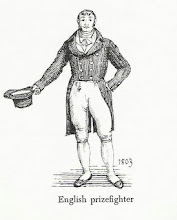In the Land of Art
The week after we came home, Jane and I went to hear master potter Mark Hewitt (an Englishman descended from three generation of porcelain makers who now lives in North Carolina) talk about his own work and the work of North Carolina’s great potters from 1850 to the present. I have this fantasy, one that attaches to various people at various times, about people who are at one with their lives. Someone who has found an occupation that is completely enthralling, challenging, pleasurable, and satisfying. The person pursues this occupation with single-minded devotion for the whole of a life, each new step on that journey producing a new problem to be solved or a new way of seeing the whole enterprise. But, meanwhile, there is also the satisfaction of things achieved along the way. The life well lived as a career in making. An honorable life devoted to producing things that the world values. (No, I don’t’ experience my own life that way. It feels like constant scrambling, with each thing done a messy compromise between what was aimed for and what time, circumstances, and personal limitations made possible.)
Mark Hewitt seems a good candidate as the embodiment of that fantasy. In his own sphere, he is wildly successful. He can’t make pots fast enough for all the people who want to buy them. And he remains challenged by what he does, while also showing a great appreciation for and desire to celebrate the work of other potters. Mark has written a book about North Carolina pottery, and he has written lots of articles about pottery around the world. His lecture introduced us to various forms of folk pottery—from Nigeria to Korea to Japan—that have influenced him. Worries about a larger world that one cannot influence would merely be a distraction. Clear the mind and focus on the difficult and worthy task at hand. That’s the ticket.
Except, of course, it can’t quite be done, unless one cultivates a tunnel-vision that would be blameworthy. In that most unpolitical of settings, addressing an audience of fans, Hewitt could not avoid reflecting, even if mostly through short side comments, on the fact that the “folk” in Africa and Korea from whom he had learned so much when visiting them in the 1970s no longer practice the art that has made him relatively rich and famous. Manufactured goods have now replaced the hand-made pottery of those villages. By a path as inevitable as the one followed by Ruskin and Morris (whom Hewitt actually mentioned briefly), an attention to the arts leads one to politics—and leads one to recognize the privileges that place one in a position to be an artist or to visit museums. There’s no space of unconscious devotion to one’s art, untroubled by the social forces and structures that make any kind of devotion to art possible in the first place.
That came through most clearly in Hewitt’s comic—but also forlorn—relation to the problem of art as pottery. He insisted that pottery was a fine art in the sense that it took great skill to make good pots. But he also, in another part of his talk, urged us to use every piece of pottery we own. Don’t set it up on display; don’t move it entirely from the functional world of its origins in those village pots made for use into the entirely different world of “art.” Which suggests that the very notion of “art” is constructed precisely to offer us a space apart from a social reality that doesn’t bear much looking at. I want, as much if not more than the next guy, to visit the land of art. It’s a great vacation, just like a trip to London. But it turns out you can’t live there. If you did, it would be an entirely different place.
(emphasis mine)
Alot there to chew on, indeed.




